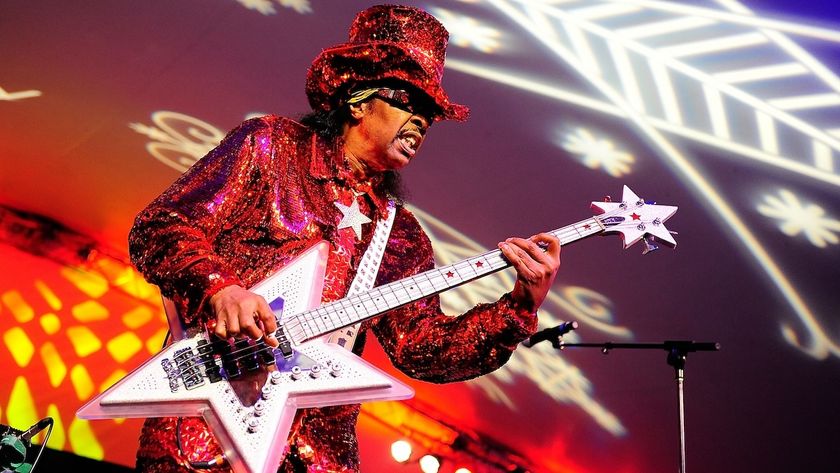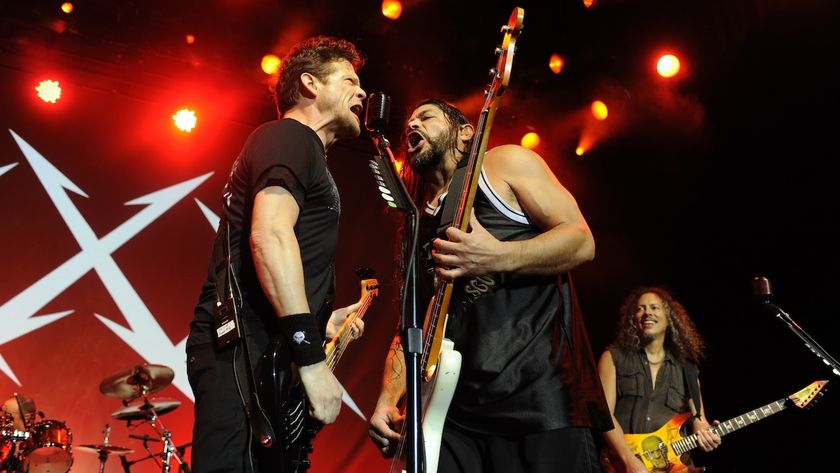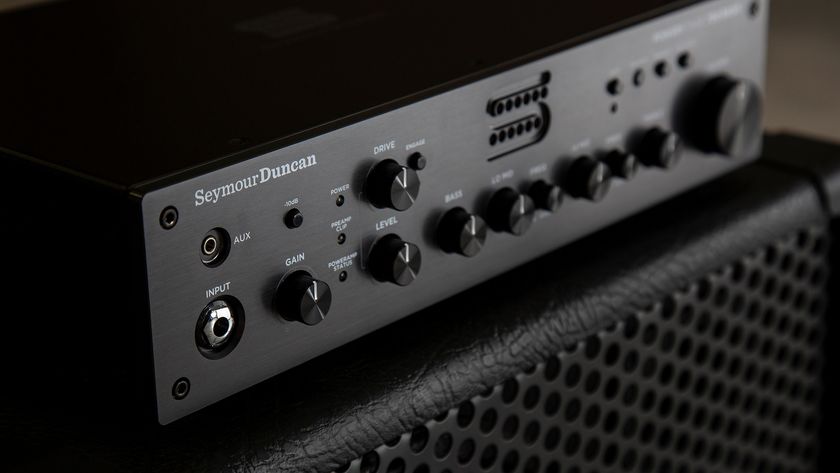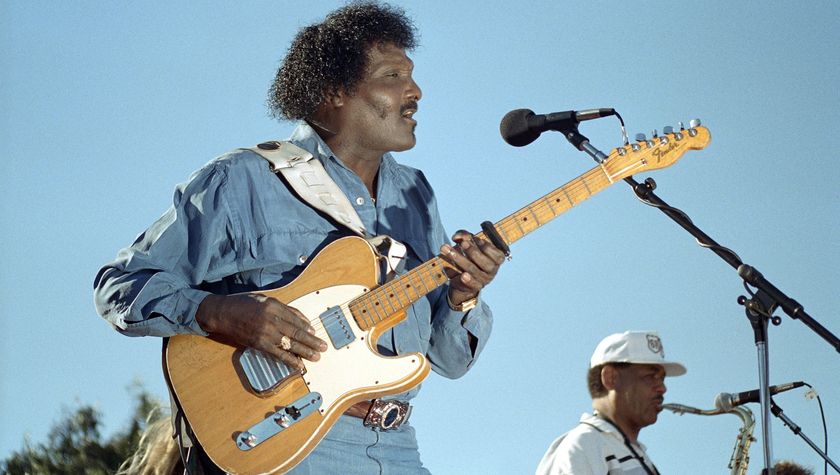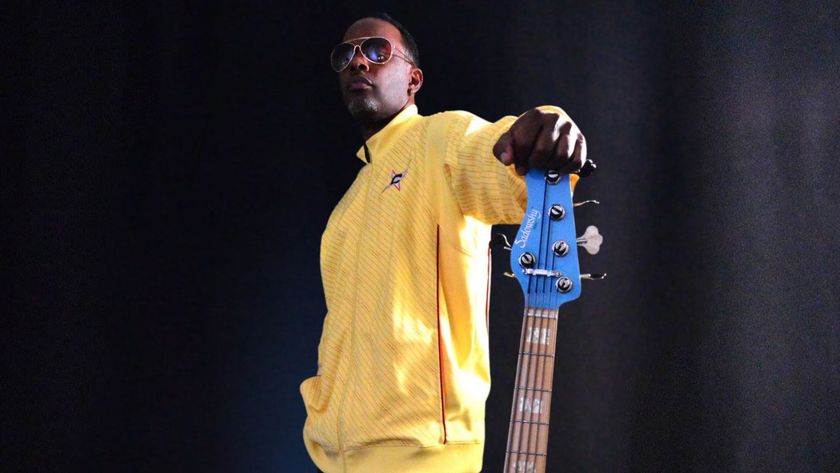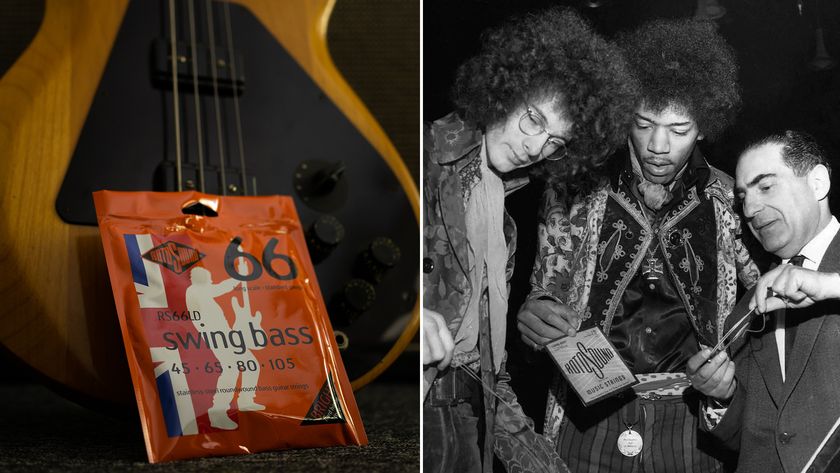Chuck Berry, Rock and Roll Pioneer, Dead at 90

Guitarist Chuck Berry—who helped shape rock and roll by mixing elements of blues and country, adding boogie woogie piano and kicking it all together with his own slashing shuffle rhythms—died today (March 18) at age 90.
His death was confirmed by the St. Charles County Police Department in Missouri on its Facebook page. According to the post, first responders found Berry unresponsive, and he could not be revived. He was pronounced dead 1:26 p.m. local time.
Berry was instrumental in making the electric guitar rock and roll’s primary instrument. For many years (and in some circles, to this day), rock guitar was defined by Berry’s distinct, T-Bone Walker-inspired doublestops and frequent, dramatic use of slides, slurs and bends.
Berry, who turned 90 on October 18, 2016, made the most of the occasion by announcing a new studio album—Chuck—which was to be released this year via Dualtone Records.
“This record is dedicated to my beloved Toddy,” said Berry in a statement last autumn, referring to his wife of 68 years, Themetta Berry. “My darlin’ I’m growing old! I’ve worked on this record for a long time. Now I can hang up my shoes!”
A renaissance man rocker, Berry was not only a brilliant guitarist and performer, but was unparalleled as a songwriter. His most enduring song, appropriately, celebrated himself; “Johnny B. Goode” was a thinly disguised account of Berry’s rise to international stardom.
“The song had its birth when a [1955] tour first brought me to New Orleans, a place I’d longed to visit ever since hearing Muddy Waters’ lyrics, ‘Going down to Louisiana way behind the sun,’ ” wrote Berry in his autobiography. “That inspiration, combined with little bits of dad’s stories and the thrill of seeing my black name posted all over town in one of the cities they brought the slaves through, turned into ‘Johnny B. Goode.’ ”
Get The Pick Newsletter
All the latest guitar news, interviews, lessons, reviews, deals and more, direct to your inbox!
After naming the song’s protagonist Johnny after his keyboardist Johnnie Johnson, Berry wrote the lyrics in two weeks of “periodic application.” The repeated chorus calls of “Go Johnny Go” are a tribute to Berry’s mother’s constant encouragement, while other imagery was also inspired by his family. “I’d been told my great grandfather lived ‘way back up among the evergreens’ in a log cabin,’ ” Berry wrote. “I revived that era with a story about a ‘colored boy name Johnny B. Goode’…but I thought that would seem biased to white fans...and changed it to ‘country boy.’ ”
The single was recorded at Chess Studios in Chicago, on December 29 or 30, 1957, with Berry backed by a lean, swinging blues trio of Willie Dixon (bass), Lafayette Leake (piano) and Fed Below (drums). The same session also yielded “Reelin’ and Rockin’ ” and “Sweet Little Sixteen.” While those tunes also became standards, their impact pales in comparison to that of “Johnny B. Goode.”
As Billy Altman notes in his liner notes to The Chuck Berry Box (MCA), the song has become so ingrained in American culture that it’s hard to imagine a time when it didn’t exist. And, thanks to the late astronomer Carl Sagan, the whole universe may know the tune by now; it was hauled off on the Voyager 1 space probe, hurtling past Jupiter and Saturn and toward Neptune, some four-billion miles away.
Berry's songs were covered by the biggest names in rock and pop, including the Rolling Stones and the Beatles; but seriousy, every self-declared rock guitarist has played a Chuck Berry song—or riff—at one point or another.
Berry received a Grammy Lifetime Achievement Award in 1984, and was in the inaugural class of Rock and Roll Hall of Fame inductees in 1986. He was awarded a Kennedy Center Honor in 2000, placed #5 on Rolling Stone’s list of the 100 Greatest Artists of All-Time in 2010, and was given the first-ever PEN Award for literary excellence in lyric writing in 2012. Several years ago, Guitar World readers voted "Johnny B. Goode" as the 12th best guitar solo in rock history.
Below are classic clips of Berry performing "Johnny B. Goode" in 1958, followed by a clip of “School Days” with Keith Richards and Eric Clapton, from the 1987 concert film Hail! Hail! Rock ’n’ Roll.
Since 1980, Guitar World has been the ultimate resource for guitarists. Whether you want to learn the techniques employed by your guitar heroes, read about their latest projects or simply need to know which guitar is the right one to buy, Guitar World is the place to look.
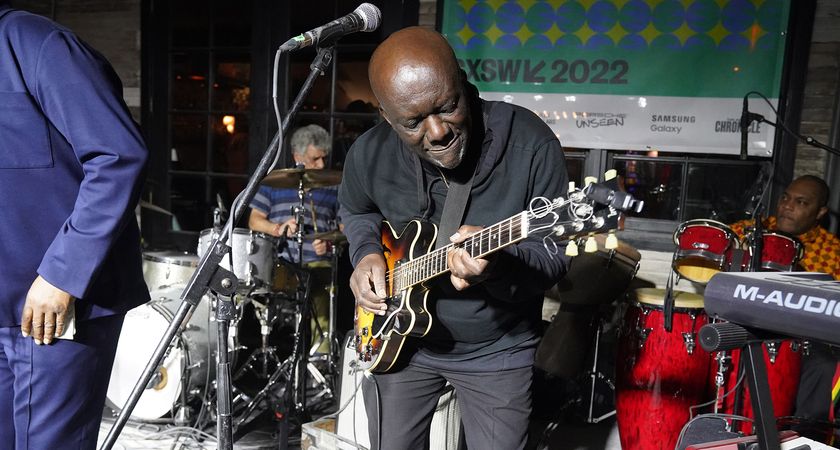
“We set out to put our thoughts and musical ideas out there, hoping they’d be appreciated. That’s proved to be true”: Sampled by Grandmaster Flash, De La Soul and the Fugees, Cymande shaped the sound of hip-hop. Now they’re back to claim their legacy
![[L-R] George Harrison, Aashish Khan and John Barham collaborate in the studio](https://cdn.mos.cms.futurecdn.net/VANJajEM56nLiJATg4P5Po-840-80.jpg)
“I got the impression that he needed to be quite forceful to get his songs onto Beatles records”: George Harrison orchestrator John Barham reflects on their shared love of Indian music and being conducted by Phil Spector

